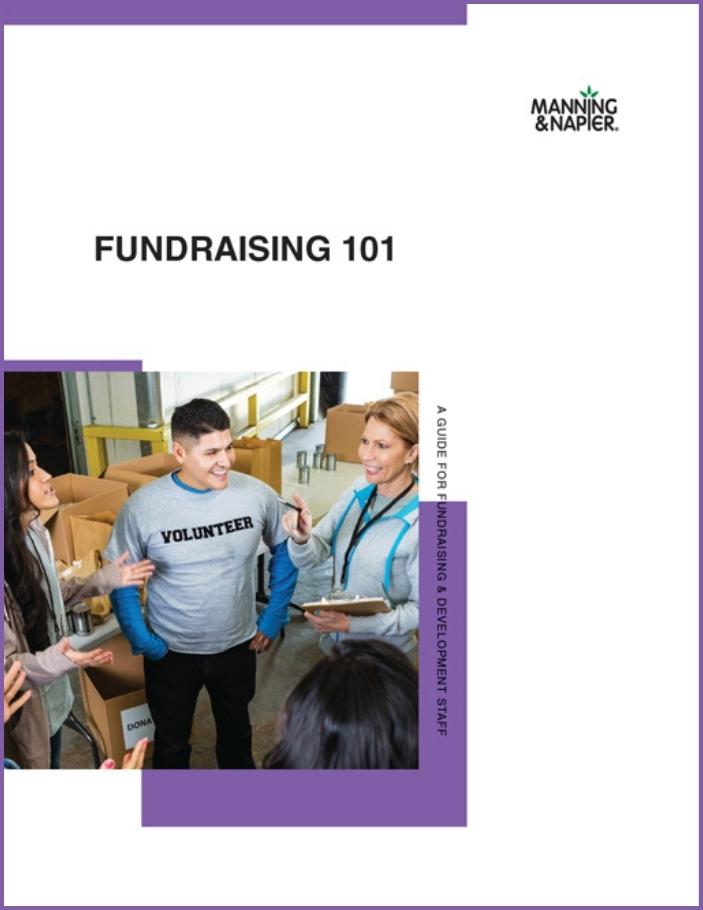Your most loyal donors are faithful to your organization because they truly believe in the work you are doing to better your community. Together, you can help make their donations go further by familiarizing yourself with gift options that align with their goals: tax-efficiency and creating a legacy. Here are three smart vehicles you can encourage your donors to utilize.
Charitable Trusts
Trusts are a favorable planning tool used by individuals to protect their wealth and share it with loved ones or causes close to their heart. One way they can fulfill their charitable intentions is by establishing a charitable trust, which has two variations depending on the goals of the trust.
Charitable remainder trusts are funded by cash, securities, or other appreciated assets. Here’s how it works:
- The trust will pay income to your donor or other beneficiaries for life or a term of years and will pay the remaining balance to your organization.
- Your donor will receive an immediate income tax deduction for a portion of their gift and your organization pays no upfront capital gains tax on the appreciated assets that are donated.
Charitable lead trusts are like remainder trusts, but flip-flopped.
- The trust will pay income to your organization to a term of years or over the course of your donor’s lifetime and the remaining balance will be paid to their heirs.
- All appreciation that takes place in the trust will be paid out tax-free to the individuals named in the trust. Why now? Estate planning laws are set to change at the end 2025, making it more advantageous for individuals to create or update their plan over the next 24 months. This opens the door for organizations to connect with key donors who have expressed interest in making a sizable gift and working with them to see if a charitable trust is a possibility.
Charitable Gift Annuity
Charitable gift annuities are an option in which your donor’s gift (of cash or securities) is made to your organization and in return, your organization will agree to make fixed income payments to your donor for life. With this selection, your donor will receive an immediate income tax deduction for a portion of their gift and a portion of the annuity payment will be tax-free to the donor. These gift annuities will operate under a simple contract between your organization and your donor.
Why now? Depending on the donor’s goal, this could be an enticing way for them to increase their cash flow through securing fixed payments, while also strategically saving on taxes – especially for those retired.
Beneficiary Designations
Naming your organization as a beneficiary is great route to pursue if your donor wants to leverage estate and tax planning techniques. One opportunity is to utilize their life insurance policy and ensure the death benefit is paid to your organization.
There are two options here as your donor can either directly name your organization as a beneficiary or your donor can transfer ownership of the policy to your organization.
An alternative is for the donor to name your organization as the successor beneficiary of all or a portion of their IRA, 401(k), or other qualified retirement account. While distributions from retirement accounts to surviving family members can be subject to both income and estate tax, directing the balance of a retirement plan to a charity removes the most taxed asset from the donor’s estate, freeing up other, more favorably taxed assets to give to family and heirs.
Why now? A good habit for everyone is to review and update beneficiary designations annually making it an easy conversation to have with donors as it’s something they’ll be looking at frequently. Use year-end or estate planning as a door opener to the conversation.
At the end of the day, your donors are the lifeblood of your organization. By understanding and utilizing these tools, you will be able to help maximize their gift in a way that aligns with their unique priorities.

Fundraising 101: A Guidebook for Fundraising & Development Professionals
For more, download our Fundraising 101 Guidebook, which includes additional strategies your organization may want to consider, tips and tricks, and more.
Download nowThe information in this paper is not intended as legal or tax advice. Consult with an attorney or a tax or financial advisor regarding your specific legal, tax, estate planning, or financial situation.



